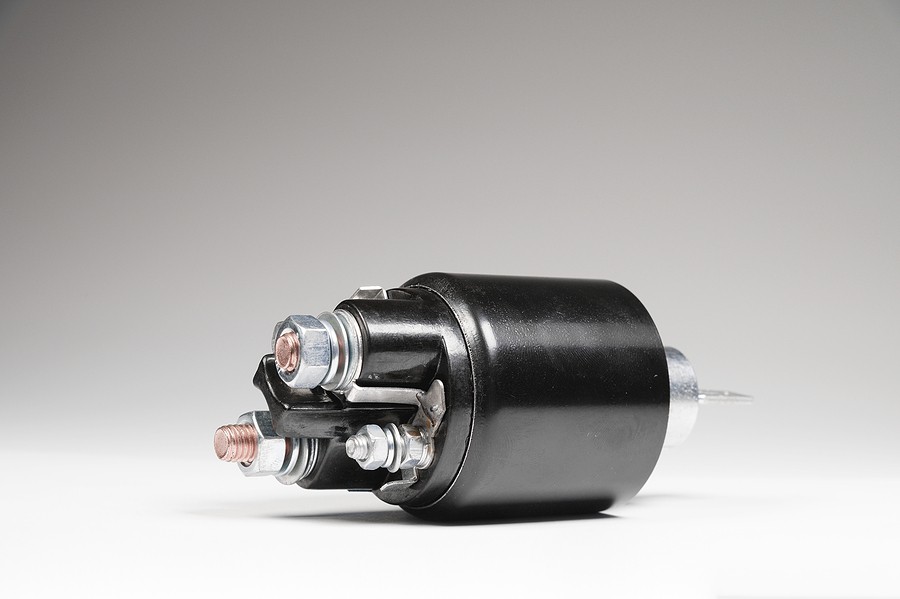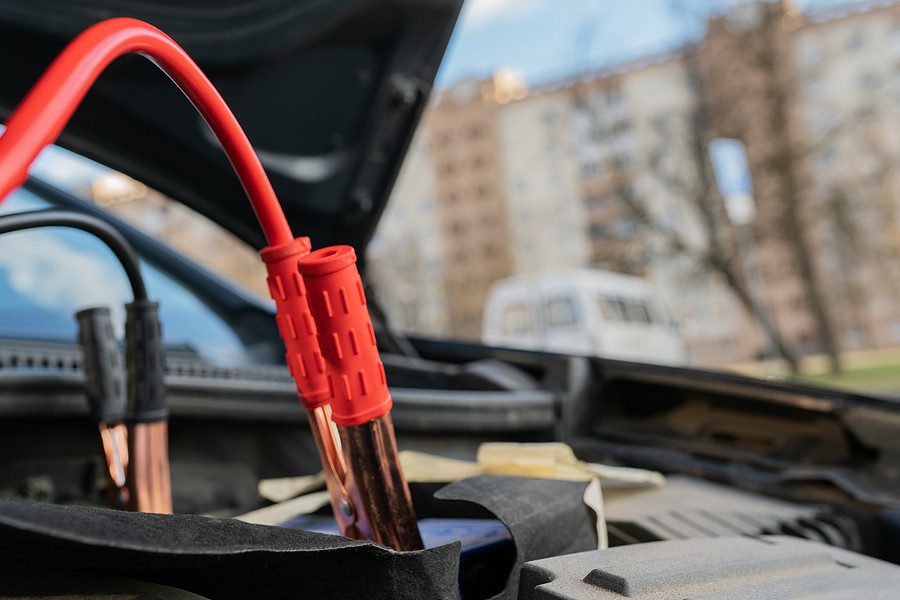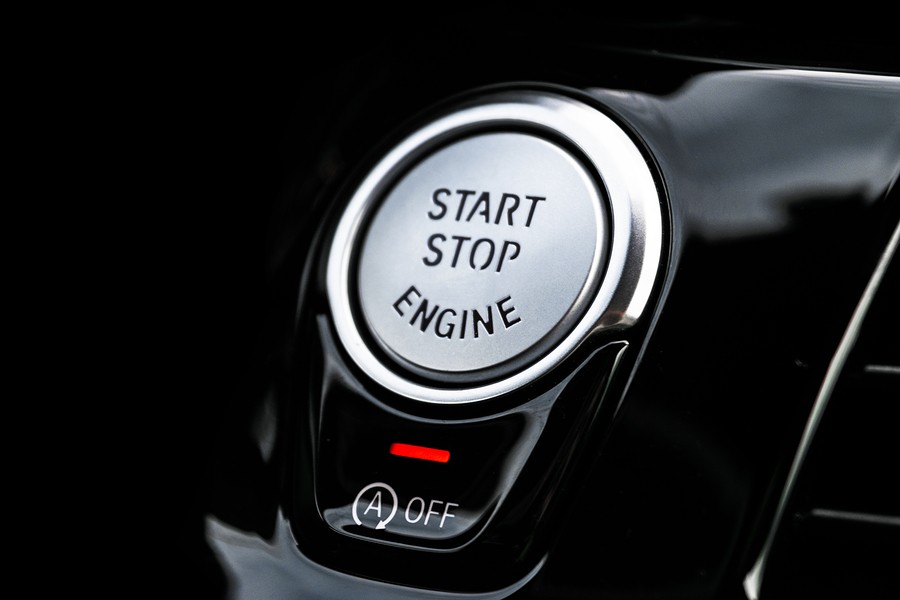If you're searching for “how to know if the alternator or starter is bad,” monitor the vehicle behavior. If the vehicle makes a fuzzy sound every time you hit the gas, it's the alternator. However, if the car takes time or doesn't start at all while making clicking noises, it could be a problem with the starter.
If you're dealing with electrical problems and notice that sometimes the vehicle doesn't start, the culprits might be the alternator or a starter. Determining the root culprit is an important skill to help you identify the problem so you don't waste time fixing another component in good shape.
The following article provides all the details you need to know to help you answer the question, “How do you know if the alternator or starter is bad?” It highlights the main symptoms of a bad alternator and the symptoms of a bad starter, along with some recommendations about the expected repair costs.
What's the difference between the alternator and the starter?
Before we dive into the details about knowing if the alternator or starter is bad, it's support for you as the car owner to understand the main difference between the job of the alternator and the starter. They work closely and relatively to the electrical system, but each has its job.
The alternator is the main power source for any electrical component as the engine is running. It converts the engine's moving energy into an electrical supply to charge all these electrical components, including recharging the battery.
The starter motor has a completely different job and is only involved when starting the vehicle. In other words, as you turn the key in the condition switch, the electric supply comes from the battery and goes to the center motor to make it bigger to crank the engine.
By just understanding the role of each component, you might get a sense of how each component might make your vehicle not behave properly. In other words, you'll get a sense of which components can go wrong if any of those components are not working properly.

How do you know if the alternator or starter is bad?
Now you have a general idea about the alternator's job and the Sutter motor covers. The next step is to understand how to detect whether the problems you're dealing with in the intellectual system relate to the sudden motor or the alternator.
The following sections summarize the main symptoms of a bad alternator and the main symptoms of a bad starter motor:
1- Symptoms of a bad alternator
When your alternator goes bad, your vehicle will start complaining by showing some important symptoms. These symptoms should help you narrow down the list of potential culprits, but obviously, it won't be a clear answer that your alternator needs to be replaced.
In other words, your mechanic needs to perform a more detailed inspection and confirm that the alternator is the bad one you were always looking for and all these symptoms are related to the bad one. Let's take a closer look below:
Dimming lights
Since the alternator is considered the power generator in your car for the electrical system, it's not surprising to see that the headlights are not as shiny as they should be. This happens if the headlights are not shining enough when the engine operates. In other words, if the vehicle is not running, a dimming headlight might be related to a bad battery.
Warning lights
When the alternator goes bad, you'll see that there might be some warning lights on the dashboard, including a check engine light. Depending on What Car you drive, you might see additional lights. Regardless of how many lights you see, it would be best to get there as soon as possible before things become more complicated.
Strange noises
Another common symptom you'll notice when the alternator is not working properly is strange grinding or whining noises coming from the alternator side. This might indicate a failing alternator belt or anything internally happening in this alternator.
Weak battery
Finally, since the alternator is the main source of recharge for the battery, one of the common symptoms you might experience is a weak or even nonworking. This is because the alternator was not strong enough to recharge the battery, and the next time you tried starting your car, it did not.

2- Symptoms of a bad starter
Similarly, such a multiple also causes trouble with zero cars. You will notice those in the form of weird noises and sometimes strange behavior. Spirit, let's take a closer look at the following list that summarizes the common symptoms of a bad starter motor:
Clicking sound
One of the fastest ways to determine whether you have a bad starter motor is by monitoring for any clicking sounds every time you turn the key in the ignition switch. If that's the case, you'll most likely deal with the bad Starter motor you must replace immediately.
Grinding noise
When the Southern Water goes bad for longer, you will hear additional grinding noises that might indicate some components are bringing each other internally. Therefore, don't wait for this problem; consult your mechanic as soon as possible.
No response
Finally, since the starter motor is responsible for enlarging the electrical supply from the battery to get the vehicle cranking, one of the first things that will happen if the Sutter motor is bad is the vehicle not responding. You'll see that the engine is not cranking, which could be a problem related to this starter motor.
Remember, many of the symptoms of a bad alternator and a bad starter motor are very general, which means they are linked to many other faulty components in some scenarios. Therefore, your mechanic needs to take a closer look and confirm the real culprit to decide what needs to be replaced.

How much does it cost to fix a bad starter or alternator?
Regardless of which components are going bad, you must adjust the problem.in other words, if you don't have a working alternator, your electrical system will not work at all, and your battery won't be charged, so you won't be able to start your car the next time.
Similarly, if you have a bad starter motor, your car won't work or start at all. In that case, you won't be able to skip the certain motorbike just the simple jump-start and replace the starter motor to get the vehicle going.
In general, replacing a bad alternator should cost you somewhere between $750 and $850. This involves the cost of the parts, and sometimes the labor costs can be higher, which means that you have to decide where you want to change this component because the labor cost can be an important decision to help you decide whether you should fix the car or think of something else.
On the other hand, replacing a certain motor cost me somewhere between $150.00 and $1100. This is a very wide range, depending heavily on your vehicle side. For example, smaller vehicles that are not very modern might not cost you more than $200.00. In contrast, more luxury cars can go up to 1100, if not more, depending on the labor cost.
Therefore, before you decide to fix this car or not, you should evaluate the total repair costs and compare them to the value of your vehicle. The vehicles that your repair costs, including any other problems you're trying to fix, are getting close to having a percent or more of your vehicle value; it might not be worth fixing your car, and you should sell it instead.

How do you know if the alternator or starter is bad? Final Thoughts
Both the alternator and the starter motor are critical components in your vehicle. They can impact the way your vehicle starts and lead to many electrical troubles if they're not taken care of.
Many people are confused about what problems indicate a bad starter motor and what problems indicate an alternator. Therefore, this article provided detailed guidance to help you identify the real culprit so you can resolve it before things become more complicated.
If you're interested in similar posts, we highly encourage you to visit our blog by clicking here.



